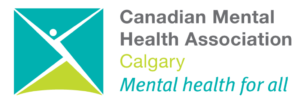Menu
Close
COVID-19: A Year Later
Mar 25, 2021
The Effects of COVID-19
A year later, the COVID-19 virus continues to dictate our actions which has evidently affected our emotions and overall well-being.
Since the second wave, Canadians have experienced an increase of emotional responses including stress, loneliness, sadness and depression.
These heightened emotions of worry are coming from some of the following subgroups.¹

The following information was provided by a survey that was dispatched by Maru/Matchbox from September 14 – 21, 2020 to a representative sample of 3,027 people ages 18 and up living in Canada
Suicidal thoughts and feelings have also seen a significant increase since the initial start of the pandemic.
Hope For The Future
Going forward, we continue to live under certain limitations that block us from physical, social interaction and personal enjoyment.
Connecting with one another through virtual means has given Canadians encouragement and hope for the future ahead.
In a recent survey conducted by CMHA Alberta, 57% of Albertans say staying connected with loved ones has helped their mental health and wellbeing during the pandemic.²
With isolation being the top mental health concern for Albertans, it is evident, and just as important, to reach out for your mental health, and the wellness and health of others in a way that is comfortable for everyone.
Karen Gallagher-Burt, Director of Philanthropy and Stewardship says connecting with others certainly looks different for everyone.
“Not all relationships can transfer to a virtual and/or remote platform and even when they do, they are challenging on multiple levels. Some of the ways that people have been connecting have been through outdoor activities such as walking with a friend or coffee visits on driveways and in parking lots. And these are great but for many of us, not enough.”
We all have to look for opportunities to have that human connection in situations we used to have on a regular basis, such as chatting with your neighbour over the fence or small talk at a coffee shop.
“It’s the tiny things that can help you feel less alone and the ability to recognize that others are struggling too and offering them a moment of connection. Just like improvisational theatre, it’s leaning in and offering yourself in a human-to-human way. I see you and I acknowledge you.”
Karen Gallagher-Burt | Director, Philanthropy and Stewardship
“With so much that is out of our control, we must focus on what we can control. You can choose your mindset, your behaviours, and critically, your boundaries. At the beginning of COVID-19, there were so many people that decided to do big things like renovate, learn a new language or how to bake bread. And that is great for a period of time. But now we are at a place when we need to slow that down and focus on rejuvenation and refocusing on our wellness.”
CMHA Calgary Support Services
CMHA Calgary currently offers programs and services Calgarians can utilize to enhance their own mental health and well-being during the pandemic.
Peer Support
Our Peer Support program connects you with a peer support worker with lived experience of a mental health or substance use concern, to help you in your recovery journey.
When you call CMHA Calgary, the first person you talk to will be someone who may have travelled a similar journey to your own who can assist and provide you with information on your options, opportunities and supports available.
They have had over 120 hours of training on relationships, recovery and peer support and a lifetime of experience.
Our Peer Support program services can be accessed over the phone at 403-297-1402 or through email at peer@cmha.calgary.ab.ca.
CMHA Calgary does not provide crisis services. If you or someone you know is in crisis, please call the Distress Centre’s 24-hour Crisis Line at (403) 266-HELP or visit their website. If you or a person you know is at risk of harm, please call 9-1-1.
Recovery College
Our Recovery College classes are an educational-based approach to help people recognize and develop their own resourcefulness and awareness in order to become experts in their own self-care, make informed choices and do the things that they want to do in life.
Everyone is welcome to attend our free courses and drop-in classes. No previous experience is required.
To look at upcoming courses, please visit the Recovery College course calendar.
Energize Don’t Hide
Each year 1.6 million Canadians report unmet mental health care needs, and the demand for services has escalated due to the pandemic. Energize Don’t Hide is a way to take care of your physical and mental health, while raising vital funds for CMHA Calgary programs and services!
From May 3 – June 30, 2021, CMHA Calgary encourages participants to complete 3,300 minutes of activity! You can cycle, run, stretch, dance, meditate or anything you want. Be active on your own or build a team!
As an Energize Don’t Hide participate, you will be actively ensuring Calgarians will have access to mental health programs when they need it the most!



